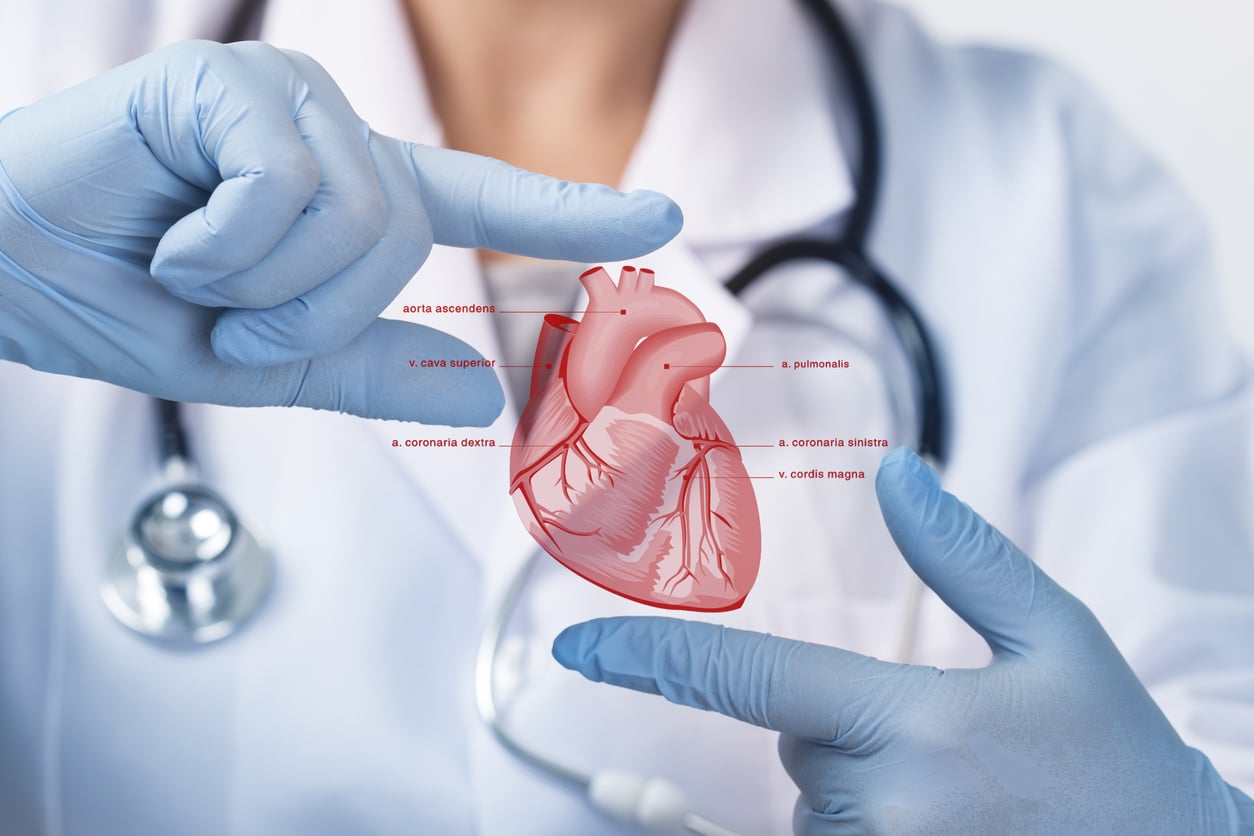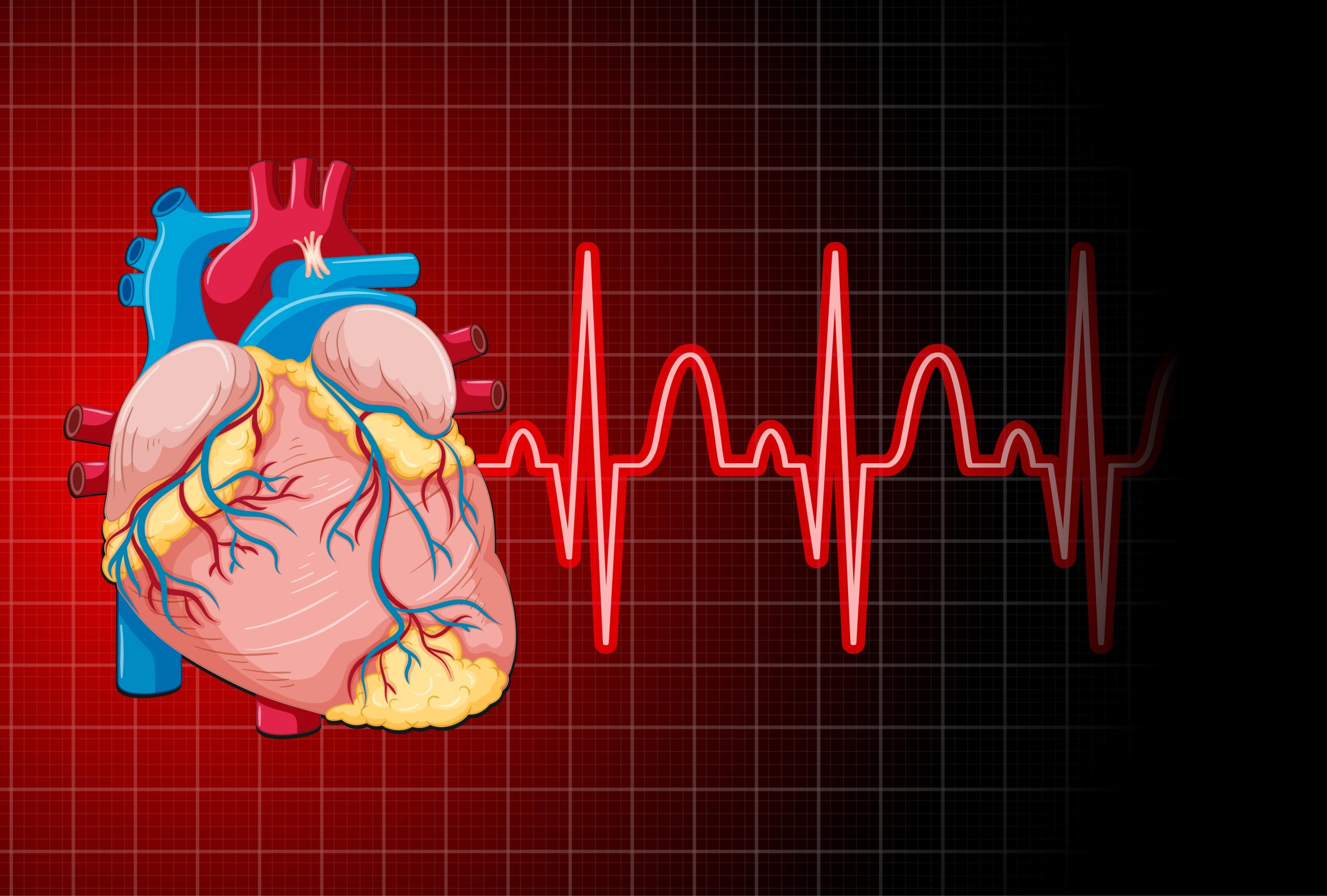Cardiology Jupiter’s checklist for better heart health
Cardiology Jupiter’s checklist for better heart health
Blog Article
Understanding the Importance of Cardiology in Modern Medical Care Solutions
Cardiology plays a crucial duty in modern healthcare, specifically as heart problem remains to be the leading reason of mortality worldwide. Advances in diagnostics and therapy have actually changed client treatment, allowing earlier interventions and enhanced end results. The shift in the direction of preventative cardiology equips individuals to manage their wellness proactively. As innovation remains to progress, the assimilation of ingenious remedies might further redefine cardiology's effect on public wellness, prompting a better exam of arising trends and their effects.
The Frequency of Heart Problem and Its Effect On Public Health
Heart condition remains the leading reason of fatality globally, its impact extends far past individual clients to impact public wellness systems and economies. The high occurrence of heart condition positions a considerable pressure on medical care sources, demanding increased financing for therapy, avoidance, and rehab programs. Public health and wellness efforts have to attend to danger aspects such as excessive weight, smoking cigarettes, and less active way of livings, which contribute substantially to the climbing occurrence of heart conditions.Moreover, the financial worry connected with heart disease is tremendous, including not only direct clinical costs however also indirect expenditures associated with lost performance and early death. Areas deal with challenges in taking care of these expenses, usually resulting in differences in healthcare access and outcomes. As the populace ages and lifestyle-related threats continue to escalate, the seriousness for reliable cardiology interventions ends up being extremely important. As a result, attending to heart problem is not just a matter of specific wellness however also a crucial public wellness concern.
Developments in Heart Diagnostics and Imaging Techniques
Recent innovations in heart diagnostics and imaging techniques have actually transformed the field of cardiology, boosting the ability to keep an eye on and detect heart problem. Methods such as heart MRI, CT angiography, and echocardiography have actually become increasingly advanced, supplying thorough pictures of cardiac structures and features. These techniques enable the very early recognition of problems like coronary artery condition, cardiac arrest, and valvular disorders.Moreover, developments in non-invasive diagnostics, such as wearable innovation and remote tracking gadgets, have equipped individuals and doctor. These devices promote real-time monitoring of heart rhythms and various other crucial indicators, causing timely interventions. Additionally, synthetic intelligence is being integrated into imaging analysis, boosting precision and effectiveness in diagnosis.
Developments in Treatment Choices for Heart Conditions
Current improvements in cardiology have led to significant technologies in therapy options for heart conditions. These consist of sophisticated medical strategies that boost procedural end results and arising medications that supply brand-new opportunities for therapy. As the area develops, these developments play a vital duty in boosting individual care and end results.
Advanced Surgical Techniques
Developments in medical methods have actually changed the landscape of cardiology, using brand-new expect people with heart problems. Minimally intrusive procedures, such as catheter-based treatments, have significantly lowered recovery times and hospital remains. Techniques like robotic-assisted surgery enhance precision, allowing specialists to browse intricate anatomical frameworks with higher accuracy. Improvements in imaging modern technology help with real-time visualization during treatments, boosting end results. Transcatheter aortic shutoff substitute (TAVR) exhibits an advancement in dealing with aortic constriction, making it possible for shutoff replacement without open-heart surgical treatment. Additionally, hybrid techniques that incorporate medical and catheter-based approaches offer customized remedies for various heart issues. These innovative medical strategies not only enhance client security however likewise broaden treatment alternatives, underscoring the crucial function of development in contemporary cardiology practices.
Emerging Medicines and Treatments
As the landscape of cardiology remains to develop, emerging medications and therapies play a crucial duty in enhancing therapy alternatives for heart disease. Technologies such as unique anticoagulants and advanced lipid-lowering agents have actually transformed the monitoring of cardio conditions, substantially minimizing individual morbidity and mortality. In addition, the development of genetics therapies and regenerative medicine supplies appealing avenues for dealing with problems previously regarded incurable. Medical trials are continuously revealing the efficacy of these treatments, pressing the boundaries of typical treatments. The integration of digital wellness technologies promotes customized medication, permitting for tailored treatment strategies based on hereditary and lifestyle elements. Jointly, these developments highlight the vibrant nature of cardiology, improving person results and redefining criteria of treatment in modern health care.
The Function of Preventive Cardiology in Person Care
Preventative cardiology plays a crucial role in client care by focusing on the recognition of threat aspects that add to cardiovascular disease. Through way of living alteration strategies and early discovery strategies, healthcare carriers can effectively decrease the incidence of cardiovascular events - Cardiologist near me. This proactive method not only improves patient outcomes but also advertises long-term wellness
Threat Factor Identification
While heart diseases remain a leading reason for morbidity and death worldwide, effective threat aspect recognition functions as a foundation of precautionary cardiology. Identifying risk variables such as high blood pressure, family members, hyperlipidemia, and diabetes mellitus background is vital for early treatment. Health care professionals make use of different screening techniques to assess these variables, permitting customized precautionary steps. In addition, comprehending a patient's way of life choices, such as smoking cigarettes and physical inactivity, further notifies risk evaluations. This comprehensive analysis allows medical professionals to develop tailored care strategies intended at mitigating risks. By focusing on threat factor identification, medical care systems can enhance client end results and decrease the general worry of cardiovascular illness, inevitably adding to enhanced public health and wellness strategies and resource appropriation.
Lifestyle Adjustment Methods
A plethora of studies highlights the vital role of way go of life adjustment methods in lowering cardio disease danger. These methods incorporate nutritional changes, increased physical activity, cigarette smoking cessation, and weight administration. By embracing a heart-healthy diet regimen abundant in fruits, veggies, entire grains, and lean proteins, individuals can lower cholesterol levels and high blood pressure. Regular exercise strengthens the heart and improves total cardio wellness. Furthermore, stopping cigarette smoking substantially lowers the threat of cardiovascular disease and improves healing rates for those with present conditions. Weight management even more adds to cardiovascular health and wellness by alleviating other risk factors such as diabetes mellitus and high blood pressure. Carrying out these lifestyle changes not just advertises private well-being yet likewise acts as a keystone of website here precautionary cardiology in client treatment.
Very Early Detection Strategies
Way of life modifications greatly add to decreasing cardiovascular illness threats, yet they are most effective when paired with very early discovery techniques. Preventive cardiology emphasizes the relevance of determining possible heart problems prior to they intensify right into major conditions. Strategies such as high blood pressure tracking, cholesterol testing, and advanced imaging modern technologies like echocardiograms play critical functions in evaluating cardiovascular wellness. Biomarkers and hereditary screening also improve the accuracy of early discovery, permitting for tailored preventative techniques. Routine cardiac threat examinations encourage healthcare providers to step in proactively, possibly protecting against heart attacks and strokes (Cardiology). By incorporating these very early discovery methods into routine treatment, individuals can take advantage of prompt way of living interventions and targeted treatments, ultimately enhancing outcomes and enhancing lifestyle
Integrating Modern Technology Into Cardiology Practices
As advancements in modern technology remain to reshape various fields, the integration of innovative devices and systems right into cardiology methods has ended up being necessary for improving individual treatment and results. Telemedicine platforms allow cardiologists to keep track of individuals from another location, enhancing access to care while reducing the burden on healthcare facilities. Wearable tools, such as smartwatches, make it possible for continual heart rate monitoring, alerting both patients and doctors to possible problems in real-time. Additionally, artificial knowledge (AI) is being used to assess substantial amounts of heart information, assisting in very early diagnosis and personalized treatment plans. Advanced imaging techniques, consisting of 3D echocardiography, enhance visualization of heart frameworks, causing their explanation more specific interventions. Digital health and wellness records (EHRs) enhance client details administration, making certain that cardiologists have prompt access to crucial information. Together, these technological advancements are transforming cardiology, advertising positive monitoring and enhanced wellness outcomes for individuals with cardio conditions.
The Relevance of Patient Education and Engagement
Patient education and engagement play an essential duty in the monitoring of cardio health and wellness. By equipping individuals with understanding regarding their conditions, treatment options, and way of living adjustments, healthcare companies empower people to take an energetic duty in their care. This positive approach can lead to boosted adherence to suggested drugs, nutritional modifications, and exercise regimens, inevitably minimizing the danger of complications.Engagement also cultivates a solid patient-provider connection, encouraging open interaction and count on. When patients really feel notified and involved, they are extra most likely to voice issues and ask questions, which can cause better professional results. Additionally, instructional resources, such as workshops or electronic platforms, can boost understanding and promote self-management approaches. Generally, prioritizing individual education and involvement is important for enhancing cardiovascular wellness, improving lifestyle, and decreasing medical care expenses related to cardiovascular conditions.
Future Trends in Cardiology and Their Prospective Influence

Often Asked Questions
What Way Of Living Adjustments Can Minimize Cardiovascular Disease Danger?
The current inquiry addresses way of life changes that can greatly lower heart problem risk. Cardiology. Embracing a balanced diet regimen, participating in normal exercise, maintaining a healthy and balanced weight, managing stress and anxiety, and preventing tobacco can especially enhance cardio health and wellness
Just How Can I Acknowledge Very Early Signs of Heart Troubles?
Recognizing very early signs of heart troubles involves tracking signs and symptoms such as breast discomfort, shortness of breath, tiredness, and uneven heart beat. Timely recognition of these indicators can trigger necessary medical analysis and intervention for much better end results.
What Are the Distinctions Between Cardiologists and Heart Surgeons?
The distinctions in between cardiologists and cardiac doctors lie in their functions; cardiologists mostly take care of and diagnose heart disease with non-invasive approaches, while heart surgeons carry out surgeries to correct structural heart concerns. Each plays a crucial, unique duty.

Just how Frequently Should I Get My Heart Health And Wellness Checked?
The regularity of heart checkup varies based upon specific threat elements. Usually, grownups should go through examinations each to 2 years, while those with existing conditions may require more regular assessments as suggested by healthcare experts.
What Function Does Genetics Play in Cardiovascular Disease Danger?
Genes substantially affects heart problem danger, with familial patterns suggesting acquired problems. Specific genetics can incline people to high blood pressure, cholesterol problems, and other cardiovascular problems, highlighting the significance of genetic screening in evaluating heart wellness. Heart condition continues to be the leading reason of death worldwide, its impact extends much beyond individual clients to influence public wellness systems and economic situations. Public wellness efforts need to deal with threat variables such as excessive weight, cigarette smoking, and inactive way of lives, which contribute substantially to the climbing incidence of heart conditions.Moreover, the economic worry connected with heart disease is tremendous, including not only straight medical prices however additionally indirect costs related to shed productivity and early mortality. Preventative cardiology plays a crucial function in patient treatment by focusing on the identification of threat elements that add to heart disease. Fabricated intelligence (AI) and equipment knowing are boosting diagnostics and client surveillance, making it possible for early discovery of heart diseases. The distinctions in between cardiologists and cardiac specialists lie in their functions; cardiologists largely diagnose and handle heart conditions with non-invasive approaches, while cardiac specialists execute surgical procedures to deal with structural heart issues.
Report this page